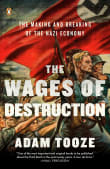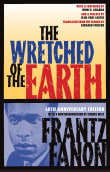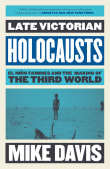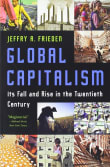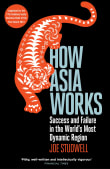Capitalism and Slavery
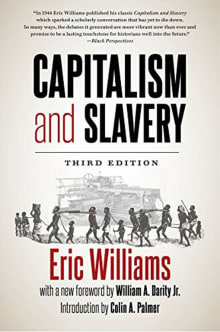
Book description
Slavery helped finance the Industrial Revolution in England. Plantation owners, shipbuilders, and merchants connected with the slave trade accumulated vast fortunes that established banks and heavy industry in Europe and expanded the reach of capitalism worldwide. Eric Williams advanced these powerful ideas in Capitalism and Slavery, published in 1944. Years…
Why read it?
3 authors picked Capitalism and Slavery as one of their favorite books. Why do they recommend it?

One of my favorite history books of all time. Why did slavery end? This classic masterpiece still has the most compelling explanation: not because our better natures won out but because a sea change in political economy—from mercantilism to industrial capitalism—made slavery obsolete.
In my work as a historian, I still aspire to pull off something resembling Williams’s fearless, elegant, and sobering style of argument.
From Stefan's list on economic and political history.

The study of world development is often conflated with a particular image of capitalism, where the latter is associated with freedom – the freedom to buy and sell goods, including one's capacity to work.
In this book Eric Williams shows to the contrary, how capitalism was founded upon the vast expansion of unfreedom. He details how slavery provided much of the material resources that facilitated industrialisation in Britain and beyond.
In doing this Williams shows how the original division, between wealthy states in today’s ‘global north’ and impoverished states in the ‘global south’, was established and reproduced over several centuries.
From Benjamin's list on the world on international development.

This book remains a classic almost a century after its publication. Written by a black Oxford-educated scholar who would lead Trinidad to independence and become its first black prime minister, it shows readers how slaveholders in Britain’s West Indian colonies reaped immense fortunes, and how this wealth, invested in Britain’s infrastructure, helped create the Industrial Revolution and make Britain a global economic powerhouse. Lucidly written, it continues to inspire debate about the connections between slavery in the sugar fields of the Caribbean and the rise of the factory in England’s industrial heartlands.
From Natalie's list on the English Caribbean.
If you love Capitalism and Slavery...
Want books like Capitalism and Slavery?
Our community of 12,000+ authors has personally recommended 100 books like Capitalism and Slavery.






